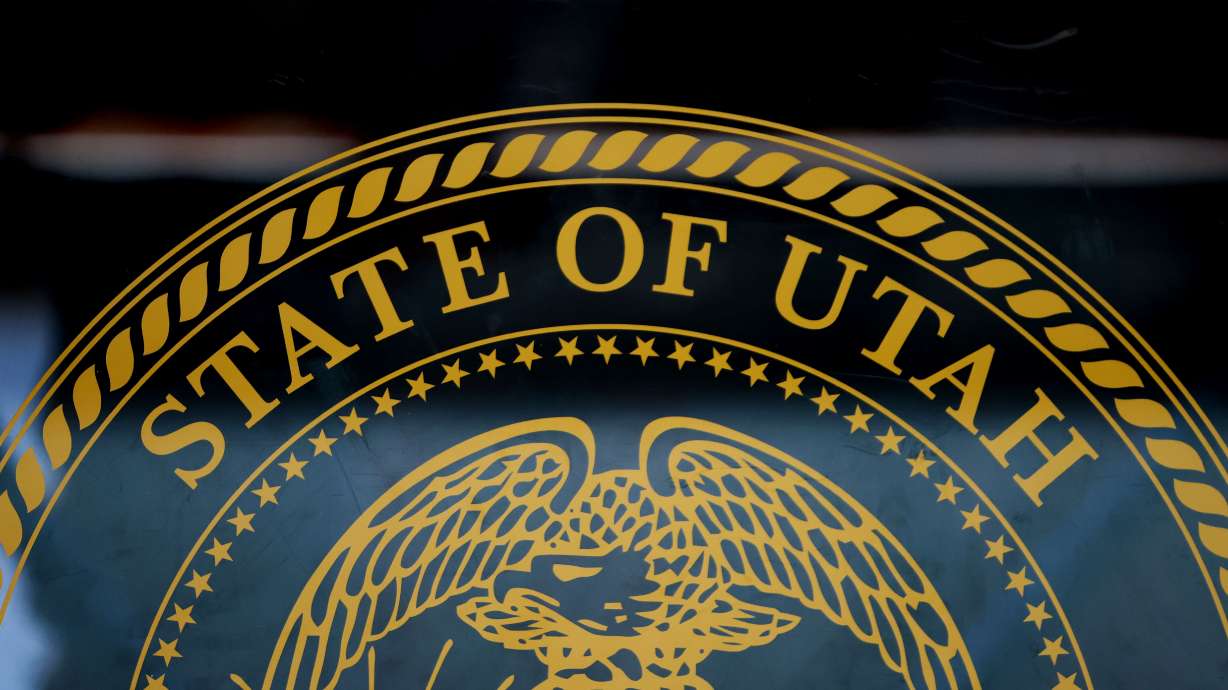Estimated read time: 4-5 minutes
This archived news story is available only for your personal, non-commercial use. Information in the story may be outdated or superseded by additional information. Reading or replaying the story in its archived form does not constitute a republication of the story.
SALT LAKE CITY — Utah is in violation of the Americans with Disabilities Act by "segregating" adults with intellectual and developmental disabilities in jobs that offer limited interaction and giving them "little choice in how to spend their time," according to a report from the U.S. Department of Justice.
The findings, announced Tuesday, follow an investigation into three state agencies that coordinate services for the population: the Department of Workforce Services' State Office of Rehabilitation, the Department of Health and Human Services' Division of Services for People with Disabilities and the Utah State Board of Education.
In a letter to Gov. Spencer Cox, Kristen Clarke, an assistant attorney general with the department's Civil Rights Division, claims the state fails to coordinate services between the various agencies, resulting in adults or youth with disabilities primarily being provided segregated employment, meaning they are often "picked up in a van each morning" to work in a "large, warehouse-like facility sometimes called a 'sheltered workshop.'"
Once there, according to the letter, they spend "hours doing repetitive tasks — like sorting recycling, shredding paper, or folding laundry — often for less than minimum wage."
The Justice Department cites the Supreme Court decision in Olmstead v. L.C., arguing services for people with disabilities should be made available "in the most integrated setting appropriate to each person's needs." It said typical recipients of integrated services work in retail stores, offices and restaurants, and they "interact with people of all abilities."
"Full inclusion in society is a central promise of the ADA," Clarke said in a statement. "People with intellectual and developmental disabilities are entitled to full inclusion, and to the dignity and purpose that comes with deciding where to work and how to spend their days."
Katie England, a spokeswoman for the Utah Department of Health and Human Services, said the agency worked closely with the Justice Department throughout the investigation and promised to continue working with the department "on next steps."
She said the state agrees that integration into communities and employment is the best approach and Utah is "committed to creating a support system where people with disabilities are integral parts of our communities and can thrive." England said the state is working toward that goal by training providers "about how to best center the person's needs" when making decisions about employment and other things.
"We are constantly striving for improvement and seeking funding that would allow us to continue to enhance the ability for people with disabilities to be engaged in their communities," she said. "While nobody likes hearing that their programs still have barriers for people to receive service, the state of Utah sees people with disabilities as critical citizens in our state and is committed to improving our service system so that people with intellectual disabilities can live their lives in the way many of us do — as independently as possible, alongside family, friends and peers."
"We look forward to working with the DOJ as we continue to strengthen our service system for the people we serve," she added.
A spokesman for the Department of Justice declined to issue further comment on the investigation.
The Disability Law Center, a Salt Lake-based nonprofit, noted in a statement that the disability rights movement is celebrating the Olmstead v. L.C. decision's 25th anniversary this weekend.
"Today, we are reminded that many Utahns have yet to see the promises of that decision realized," the statement said. "Too many Utahns with disabilities are still segregated in institutional settings, separate classrooms and sheltered workshops. However, after the actions today by the Department of Justice, we are hopeful that Utahns with intellectual and developmental disabilities will have more opportunities to choose to work in the community."
The investigation also focused on so-called "day services" for adults with disabilities, through which they can "work on their self-care skills, social skills, and communication skills" during time when they are not working. The department said Utah "makes it easier and more profitable" for service providers to offer similarly segregated day services, leading to a lack of day services in the community.
In facilities that offer segregated settings, "people with (disabilities) often sit in large groups and color, watch TV, or sit around idle," the letter states.
Although the state "has taken small steps" to help adults find integrated jobs and help people spend time in their communities, "these efforts are not enough to overcome the barriers we identified to accessing integrated settings," Clarke concluded.
The Department of Justice said the state could correct the findings by connecting people to more integrated employment opportunities, maintaining a larger group of providers who can offer integrated employment and day services, reducing the wait times for such services, and requiring that state divisions are involved in transition planning for youth with disabilities.
Clarke said she and the department "look forward to working with you to resolve the department's findings," but "if Utah will not negotiate or if our negotiations fail, the United States may take appropriate action — including initiating a lawsuit — to remedy Utah's ADA violations."
The Justice Department in April sued the state of Utah, just three weeks after announcing a separate investigation found prison administrators discriminated against an inmate who is transgender.










